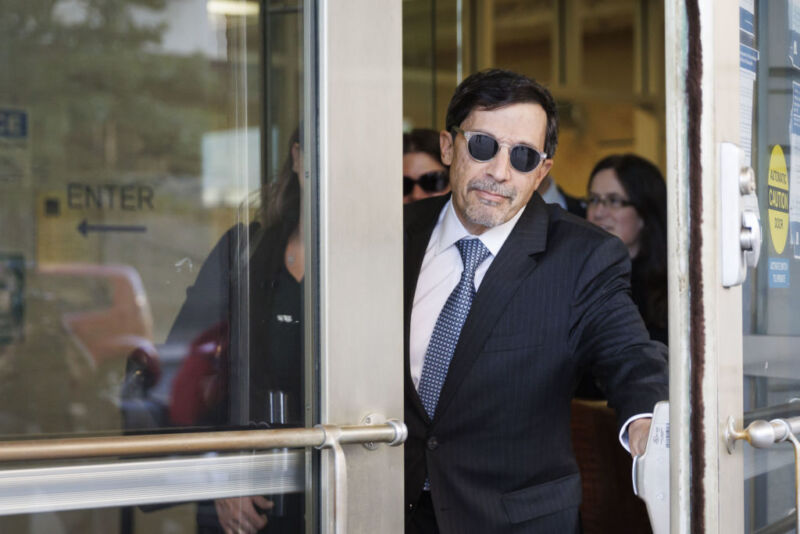
Near the end of the second day of closing arguments in the Google monopoly trial, US district judge Amit Mehta weighed whether sanctions were warranted over what the US Department of Justice described as Google's "routine, regular, and normal destruction" of evidence.
Google was accused of enacting a policy instructing employees to turn chat history off by default when discussing sensitive topics, including Google's revenue-sharing and mobile application distribution agreements. These agreements, the DOJ and state attorneys general argued, work to maintain Google's monopoly over search.
According to the DOJ, Google destroyed potentially hundreds of thousands of chat sessions not just during their investigation but also during litigation. Google only stopped the practice after the DOJ discovered the policy. DOJ's attorney Kenneth Dintzer told Mehta Friday that the DOJ believed the court should "conclude that communicating with history off shows anti-competitive intent to hide information because they knew they were violating antitrust law."
Mehta at least agreed that "Google's document retention policy leaves a lot to be desired," expressing shock and surprise that a large company like Google would ever enact such a policy as best practice.
Google's attorney Colette Connor told Mehta that the DOJ should have been aware of Google's policy long before the DOJ challenged the conduct. Google had explicitly disclosed the policy to Texas' attorney general, who was involved in DOJ's antitrust suit over both Google's search and adtech businesses, Connor said.
Connor also argued that Google's conduct wasn't sanctionable because there is no evidence that any of the missing chats would've shed any new light on the case. Mehta challenged this somewhat, telling Connor, "We just want to know what we don't know. We don't know if there was a treasure trove of material that was destroyed."
AdvertisementDuring rebuttal, Dintzer told Mehta that Google's decision to tell Texas about the policy but not the federal government did not satisfy their disclosure obligation under federal rules of civil procedure in the case. That rule says that "only upon finding that the party acted with the intent to deprive another party of the information’s use in the litigation may" the court "presume that the lost information was unfavorable to the party."
The DOJ has asked the court to make that ruling and issue four orders sanctioning Google. They want the court to order the "presumption that deleted chats were unfavorable," the "presumption that Google's proffered justification" for deleting chats "is pretextual" (concealing Google's true rationale), and the "presumption that Google intended" to delete chats to "maintain its monopoly." The government also wants a "prohibition on argument by Google that the absence of evidence is evidence of adverse inference," which would stop Google from arguing that the DOJ is just assuming the deleted chats are unfavorable to Google.
Mehta asked Connor if she would agree that, at "minimum," it was "negligent" of Google to leave it to employees to preserve chats on sensitive discussions, but Connor disagreed. She argued that "given the typical use of chat," Google's history-off policy was "reasonable."
Connor told Mehta that the DOJ must prove that Google intended to hide evidence for the court to order sanctions.
That intent could be demonstrated another way, Mehta suggested, recalling that "Google has been very deliberate in advising employees about what to say and what not to say" in discussions that could indicate monopolistic behaviors. That included telling employees, "Don't use the term markets," Mehta told Connor, asking if that kind of conduct could be interpreted as Google's intent to hide evidence.
But Connor disagreed again.
"No, we don't think you can use it as evidence," Connor said. "It's not relevant to the claims in this case."
But during rebuttal, Dintzer argued that there was evidence of its relevance. He said that testimony from Google employees showed that Google's chat policy "was uniformly used as a way of communicating without creating discoverable information" intentionally to hide the alleged antitrust violations.
Punishing Google for being the best “unprecedented”
Mehta did not indicate whether he seriously considered sanctioning Google and allowed each side to give final remarks before the trial's conclusion.
State attorneys general used this opportunity to accuse Google of shoring up default deals to "freeze" the search ad "ecosystem," while the DOJ claimed that evidence of Google's monopoly in search fit the pattern found during the last big antitrust trial against Microsoft "like a glove."
Like Microsoft foreclosing rivals on its own systems, "by ensuring that all of Android and Apple and mobile users are offered Google, either as the default general search engine or the only general search engine, Google's deals with Android and Apple clearly have a significant effect in preserving its monopoly," Dintzer said. And this blocks Bing or any other rival from reaching the "critical level necessary" to "pose a real threat to Google's monopoly," Dintzer said.
"Today must be the day for action," Dintzer told Mehta, urging the court to rule that Google had violated the Sherman Act and allow for remedies.
Google's lead attorney John Schmidtlein pushed back. He claimed that "I don’t know what gloves Mr. Dintzer wears," but Microsoft's antitrust case substantially differs because Microsoft "coerced third parties to take inferior products that historically they had distributed and they imposed exclusivity" that clearly foreclosed rivals from competing and had "significant anti-competitive effects."
Google has maintained that there was no coercion in keeping Google's search engine as the default. Instead, "every single third party—Mozilla, Samsung, Motorola, Verizon, AT&T, T-Mobile—every single relevant partner came before this court and said we picked Google because it was the best," Schmidtlein argued.
"This would be an unprecedented decision to punish a company for winning on the merits," Schmidtlein warned Mehta.
Mehta is expected to rule in late summer or early fall. If Google loses, Mehta could order a breakup of its business, as well as sanctions for allegedly destroying evidence.



















